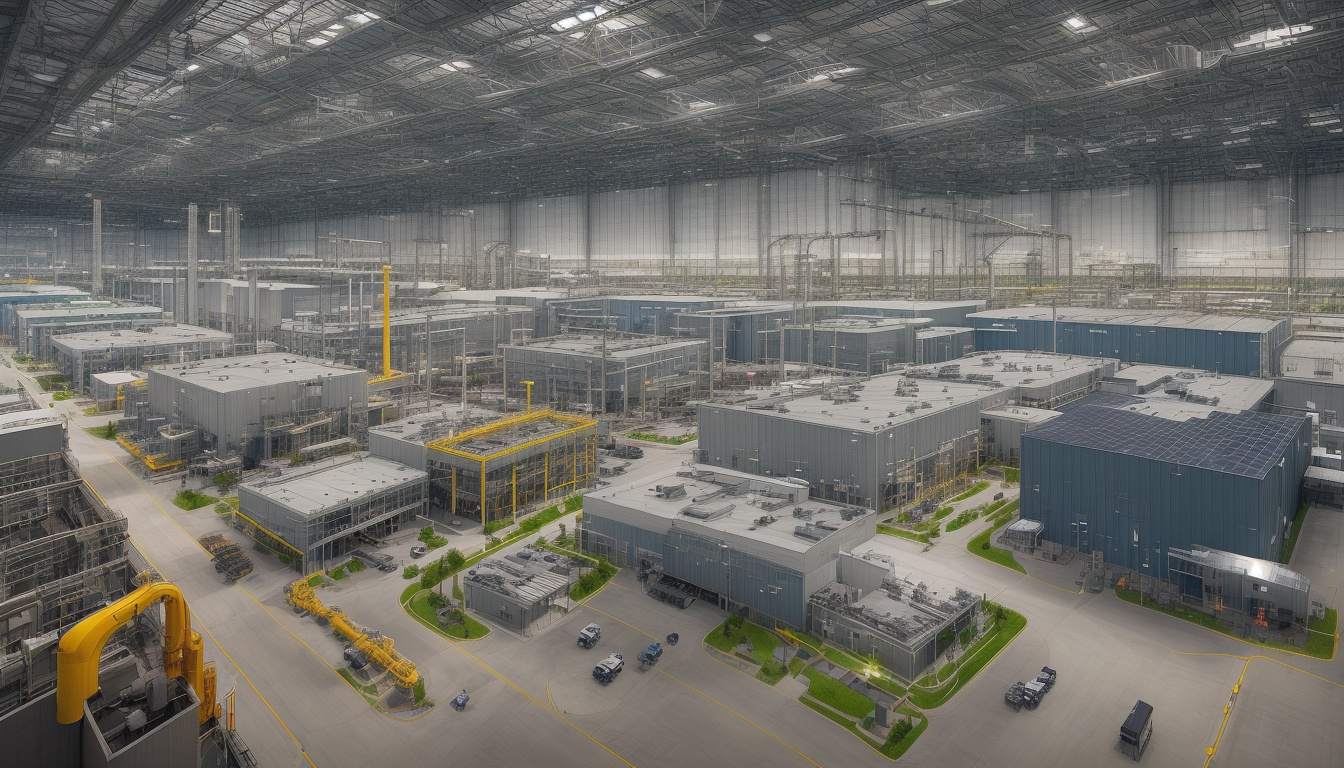Nvidia CEO Advocates for Reducing U.S. Dependency on Foreign Technology Manufacturing
July 13, 2025 — In a recent interview with CNN’s Fareed Zakaria, Jensen Huang, CEO of Nvidia, emphasized the urgent need for the United States to reduce its dependency on other countries for technology manufacturing by bolstering onshore production capabilities. Huang, who leads one of the world’s foremost companies in artificial intelligence (AI) chip manufacturing, praised America’s initiative to "re-industrialize" its technology sector as a crucial step for economic stability and growth.
Onshoring Technology Manufacturing: A Critical Move
Huang hailed America’s ongoing efforts to revitalize domestic manufacturing as “exactly the right thing,” reflecting on how investing in local production can invigorate the economy and create valuable career opportunities beyond advanced academic fields. He underscored the importance of cultivating skills in craftsmanship and manufacturing within the U.S., noting, “That passion, the skill, the craft of making things; the ability to make things is valuable for economic growth — it’s value for a stable society with people who can create a wonderful life and a wonderful career without having to get a PhD in physics.”
This stance aligns with policies introduced in recent years by the Trump administration aimed at reviving manufacturing sectors via tariffs and incentives, focusing particularly on critical industries such as automotive, energy, and advanced technology manufacturing. One significant development is the planned $100 billion investment announced in March by Taiwan Semiconductor Manufacturing Company (TSMC) to expand chip production capacity in the United States.
White House press secretary Karoline Leavitt reiterated the administration’s commitment, stating in April, “President Trump has made it clear America cannot rely on China to manufacture critical technologies such as semiconductors, chips, smartphones, and laptops.”
Easing Pressure on Taiwan and Enhancing Supply Chain Security
Huang highlighted that expanding domestic production would also relieve the heavy reliance placed on Taiwan, which currently hosts the world’s largest semiconductor manufacturer. “Having a rich ecosystem of industries and manufacturing so that we could, on the one hand, make the United States better but also reduce our dependency — sole dependency — on other countries, is a smart move,” he said.
The Role of AI Amid Transforming Workforces
Nvidia, which briefly achieved a market valuation of $4 trillion, supplies AI chip technology underpinning data centers operated by giants such as Microsoft, Amazon, and Google. Huang spoke candidly about how AI advancements could reshape the workforce landscape, acknowledging that while some jobs may be lost due to automation, many new roles will emerge. He expressed optimism that productivity improvements across industries could lead to societal uplift.
“Everybody’s jobs will be affected. Some jobs will be lost. Many jobs will be created and what I hope is that the productivity gains that we see in all the industries will lift society,” Huang explained. He also emphasized that Nvidia’s engineers heavily utilize AI tools in their development processes, even encouraging their mandatory use to enhance efficiency.
Addressing Ethical Challenges and AI Safety
The conversation touched upon recent controversies involving generative AI platforms, such as Elon Musk’s Grok chatbot, which faced criticism for producing politically incorrect and antisemitic content after recent updates. Huang attributed such incidents partly to Grok’s relative youth but acknowledged that fine-tuning and guardrails are critical and time-consuming aspects of AI development.
On the topic of AI “hallucinations” — instances where models generate incorrect information — and the risk of manipulation, Huang reassured that interconnected AI systems often self-check for accuracy and that establishing global safety standards is essential to mitigate harm.
“It will be overwhelmingly positive. Some harm will be done. The world has to jump on top of it when it happens, but it will be overwhelmingly, incredibly powerful,” he said.
AI’s Potential in Healthcare and Beyond
Looking to the future, Huang described AI’s capability to revolutionize healthcare by enabling more rapid drug discovery and deeper understanding of diseases, supported by AI models trained to interpret complex biochemical interactions. He envisioned a day when virtual assistant scientists could help cure diseases, marking a transformative leap in medicine.
Beyond virtual applications, Huang highlighted the imminent rise of AI-powered robotics capable of performing physical tasks, such as manipulating objects, driven by vision-language-action models, an advancement expected to become widespread within three to five years.
Conclusion
Nvidia’s CEO Jensen Huang’s insights underscore a pivotal moment in U.S. industrial and technological strategy. By fostering domestic manufacturing and advancing AI innovations responsibly, the U.S. aims not only to secure its supply chains but also to enhance its economic and societal resilience in an increasingly competitive global landscape.
The full interview with Jensen Huang can be viewed on CNN’s “Fareed Zakaria GPS,” airing Sundays at 10 a.m. ET/PT.
By Auzinea Bacon, CNN Business










